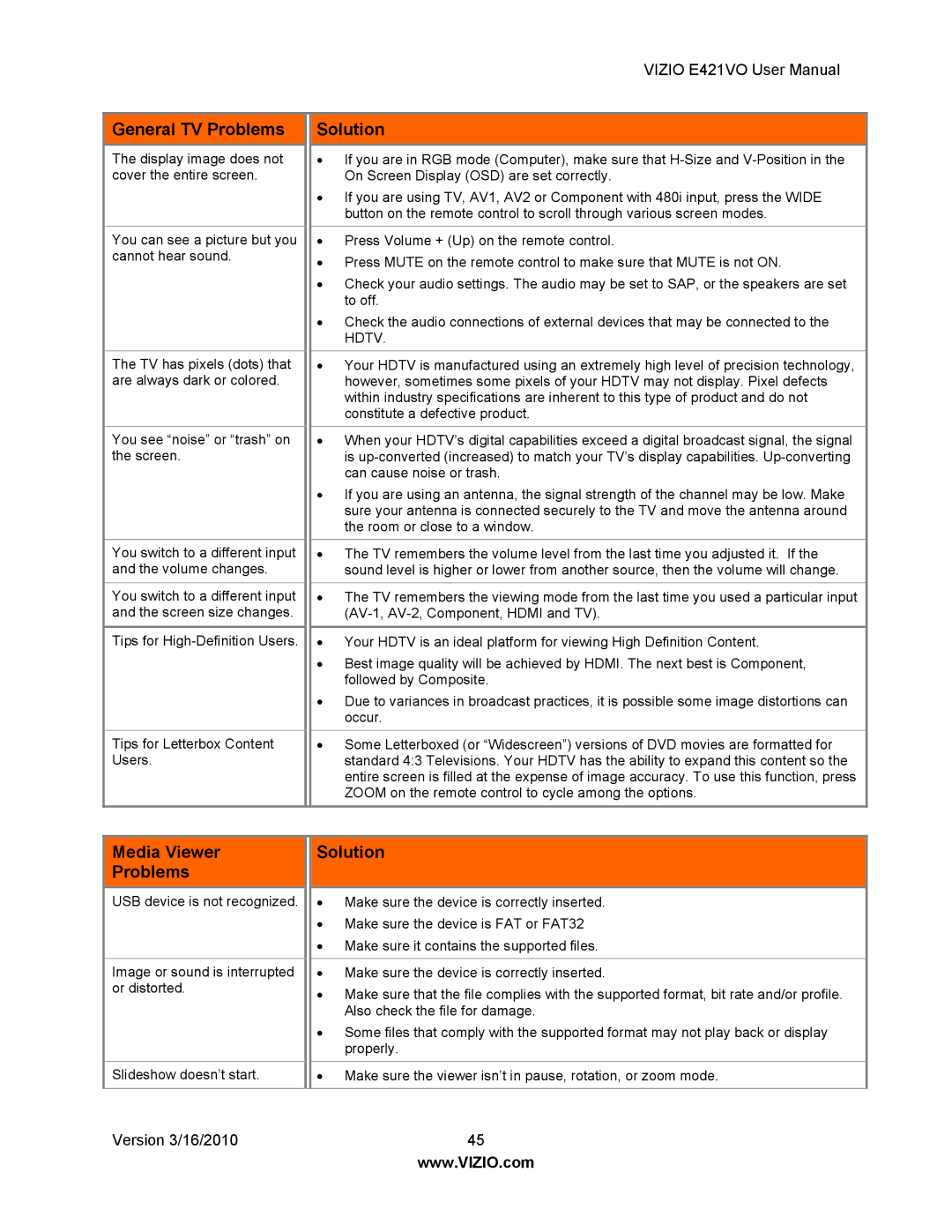
VIZIO E421VO User Manual
General TV Problems
The display image does not cover the entire screen.
You can see a picture but you cannot hear sound.
The TV has pixels (dots) that are always dark or colored.
You see “noise” or “trash” on the screen.
You switch to a different input and the volume changes.
You switch to a different input and the screen size changes.
Tips for
Tips for Letterbox Content Users.
Solution
If you are in RGB mode (Computer), make sure that
If you are using TV, AV1, AV2 or Component with 480i input, press the WIDE button on the remote control to scroll through various screen modes.
Press Volume + (Up) on the remote control.
Press MUTE on the remote control to make sure that MUTE is not ON.
Check your audio settings. The audio may be set to SAP, or the speakers are set to off.
Check the audio connections of external devices that may be connected to the HDTV.
Your HDTV is manufactured using an extremely high level of precision technology, however, sometimes some pixels of your HDTV may not display. Pixel defects within industry specifications are inherent to this type of product and do not constitute a defective product.
When your HDTV’s digital capabilities exceed a digital broadcast signal, the signal is
If you are using an antenna, the signal strength of the channel may be low. Make sure your antenna is connected securely to the TV and move the antenna around the room or close to a window.
The TV remembers the volume level from the last time you adjusted it. If the sound level is higher or lower from another source, then the volume will change.
The TV remembers the viewing mode from the last time you used a particular input
Your HDTV is an ideal platform for viewing High Definition Content.
Best image quality will be achieved by HDMI. The next best is Component, followed by Composite.
Due to variances in broadcast practices, it is possible some image distortions can occur.
Some Letterboxed (or “Widescreen”) versions of DVD movies are formatted for standard 4:3 Televisions. Your HDTV has the ability to expand this content so the entire screen is filled at the expense of image accuracy. To use this function, press ZOOM on the remote control to cycle among the options.
Media Viewer
Problems
USB device is not recognized.
Image or sound is interrupted or distorted.
Slideshow doesn’t start.
Solution
Make sure the device is correctly inserted.
Make sure the device is FAT or FAT32
Make sure it contains the supported files.
Make sure the device is correctly inserted.
Make sure that the file complies with the supported format, bit rate and/or profile. Also check the file for damage.
Some files that comply with the supported format may not play back or display properly.
Make sure the viewer isn’t in pause, rotation, or zoom mode.
Version 3/16/2010 | 45 |
| www.VIZIO.com |
